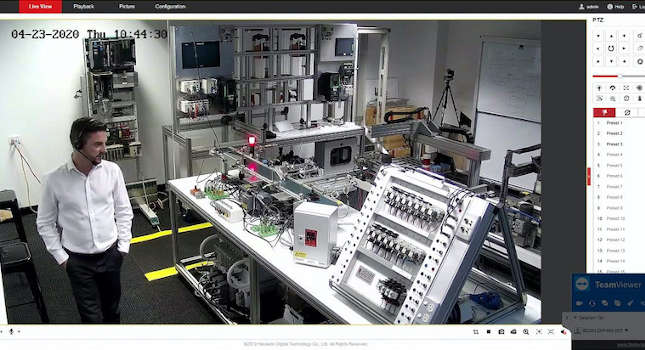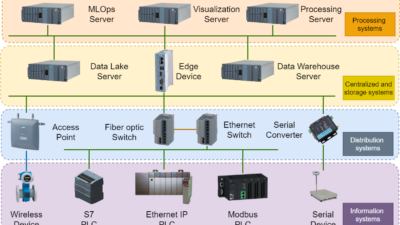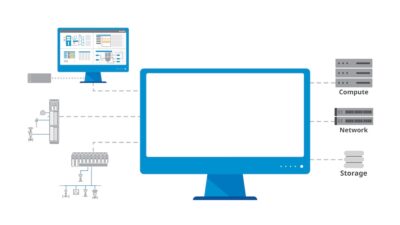A shift toward engineering design will require proficiency in new tools developed through the training of current workers as well as the attraction of digitally fit new hires

Set against a backdrop of market turmoil and the rapidly changing face of the manufacturing sector, the war for talent with advanced skills continues to challenge employers. Finding and keeping digitally skilled personnel in a candidate-driven market is recognized as a vital component in the economic success of organizations in the new global landscape and a key factor in economic recovery.
As the engineering community experiences a renaissance and carves out new roles along complex value chains, support from the top will be needed to keep mature talent and help teams find their place in the new order. Predicting and proactively responding to the changing needs of engineers and technicians will set leaders apart from their peers and draw the best employees to their organizations. As traditional production roles are transitioned to embed Industry 4.0 tools, the workforce will be looking for the skills required to work alongside these new technologies and for support from leaders to innovate the birth of new roles and ways of working. A shift toward engineering design will require proficiency in new tools developed through the training of current workers as well as the attraction of digitally fit new hires (see Figure 1).
High-performing workers are often seeking out the next challenge. They want to take on projects that harness new technology and set them up for long-term career success. But this means more than just getting their hands on shiny new Industry 4.0 toys. Attracting and retaining workers with in-demand skills requires an employee value proposition (EVP) that displays a commitment to career development and the promise of interesting work that adapts as technology advances.
The Mercer 2020 Global Talent Trends Survey reported that 81% of thriving employees feel they have the opportunity to grow personally and professionally, highlighting the value workers place on new learning. The workplaces that model a commitment to life-long learning end up with the most effective and loyal teams.
New skills help experienced talent embrace change
Simon White, molding technician at Philmac, is one such thriving employee. After accepting redundancy from an Adelaide-based car manufacturer, White has carved out a rewarding technical career at a leading fittings manufacturer. Attracted by the founder’s philosophy, “There’s always a better way to do things,” the agile mindset of the business has kept White engaged for more than 10 years. White is pursuing growth in his career and has been spurred on by the opportunity to undertake a Diploma of Applied Technologies delivered by Skills Lab, a Sage Group company.
“Everything we’ve learned so far has got me invested in industry 4.0,” White said. “I feel like I’ve reached a point where I need a new challenge, and this offered a great opportunity to enhance my skills.”
The incentive provided by the acquisition of new skills assists in retaining the industry maturity and expert knowledge of experienced employees. The diploma focuses on advancing the skills of current workers on the concepts and principles of Industry 4.0 and relates them back to organizational objectives. The training investment can secure workers who know the strengths and challenges of the business and energize their troubleshooting efforts to enhance operations (see Figure 2).
Remuneration is not the only motivator
The growth employees seek doesn’t always refer to a bank balance. An imminent pay raise or promotion is not the only acknowledgement workers seek for a job well done and the promise of new and exciting work. Skills advancement can be an effective way to show staff they have scope for career progression. Investment in future-focused skills and ongoing learning is an important way to esteem workers and boost morale in uncertain economic times.
New learning brings the security that comes with expertise. Retaining high performing talent requires a shift from the slow distillment of technical expertise to collaboration and communication across teams to help staff adapt to the fast-paced changes around them and reinvent the mentoring process. When a worker can pass on skills to their peers, it gives them a renewed sense of value while creating a strong continuous improvement and growth culture invaluable for the organization.
“They look after us here. Everyone had an opportunity to apply for [the Diploma] and I was lucky to get it. I feel honored that I got chosen, so I’ll invest my energy to produce positive outcomes for the company and myself. I’m excited by something new,” White said.
New technology enables a creativity boost
The creative application of Industry 4.0 also is a motivator for skilled talent to stay with an organization. New technology opens the door for a break from traditional methods and provides a platform for new ideas to emerge.
Exploring new ways of working and divergent solutions to operational problems is an attractive opportunity for experienced staff and provides a reinvigoration of roles that may have reached a plateau. This renewal played out as White explored a new quality control system through the Diploma unit “Work in Industry 4.0.” The adoption of the new system is expected to increase safety outcomes, reduce waste and increase efficiency through decreased disruption to production.
“Anyone could have an idea at our work. You just have to put forward a suggestion. The possibilities that Industry 4.0 presents for manufacturing are really exciting, it’s blowing my mind,” White said.
This is where the Diploma of Applied Technologies is invaluable as people often don’t know where to start. We’ve found people can see the potential problems or what could be done differently through enabling technology, but they may not know where to start, how to position this as a business case, what questions to ask and who to source their information from.
Diploma units are designed to bring immediate value to organizations through application to current problems. The experiential knowledge of mature employees is used to innovate Industry 4.0 solutions to issues identified by teams working with systems day-to-day. The training draws on a wealth of field experience with a focus on making the learning relevant and attractive to both new and mature personnel.
Skills Lab trainer and instructional designer, Peter Rundle-Curry said the learning is designed to impart knowledge that inspires new ways of working in current roles.
“The project-based learning builds throughout the Diploma, starting with an overview of the concepts and principles of working in Industry 4.0. The project encourages innovation and adaptation of new technologies into their current workplace,” Rundle-Curry said.
Apprenticeships fill the skills gap for employers
Getting in on the ground floor and attracting school leavers is another key component of addressing looming skills shortages. Apprenticeships can offer a valuable boost to the talent pool and produce workers ready to hit the ground running in entry-level positions. Hands-on experience with the latest digital tools and practical on-the-job training can be a drawcard for school leavers and position the manufacturing sector as an innovative space to develop a rewarding career.
The apprenticeship model also facilitates the sharing of specialist knowledge from more experienced staff and an immersion in the organizational culture unique to each business. Graduates of apprenticeship programs emerge with practical knowledge tailored to their host organization and the loyalty developed throughout their training creates the makings of a valuable long-term employee.
Keeping the doors open to the best and brightest talent should be an ongoing priority for the manufacturing sector as they actively engage with new skills, new thinking, new ideas and integrate them through the organization. This approach will complement existing talent and knowledge and create a powerful combination for those organizations looking to do things differently and emerge with strength.
As changes to the industry blaze ahead, leaders are challenged to upskill those in traditional roles and attract the ambitious to create a mix of mature and emerging talent that secures the future sustainability of their business. The pace of change no longer allows for learning as a one-off transaction but demands reskilling at speed and scale throughout the career. Ongoing training is a powerful hook for new hires and an anchor for the experienced in an industry that needs to commit to constant learning to keep a competitive edge and innovate their way forward in these challenging times.
This article appeared in the Global System Integrator Report.



